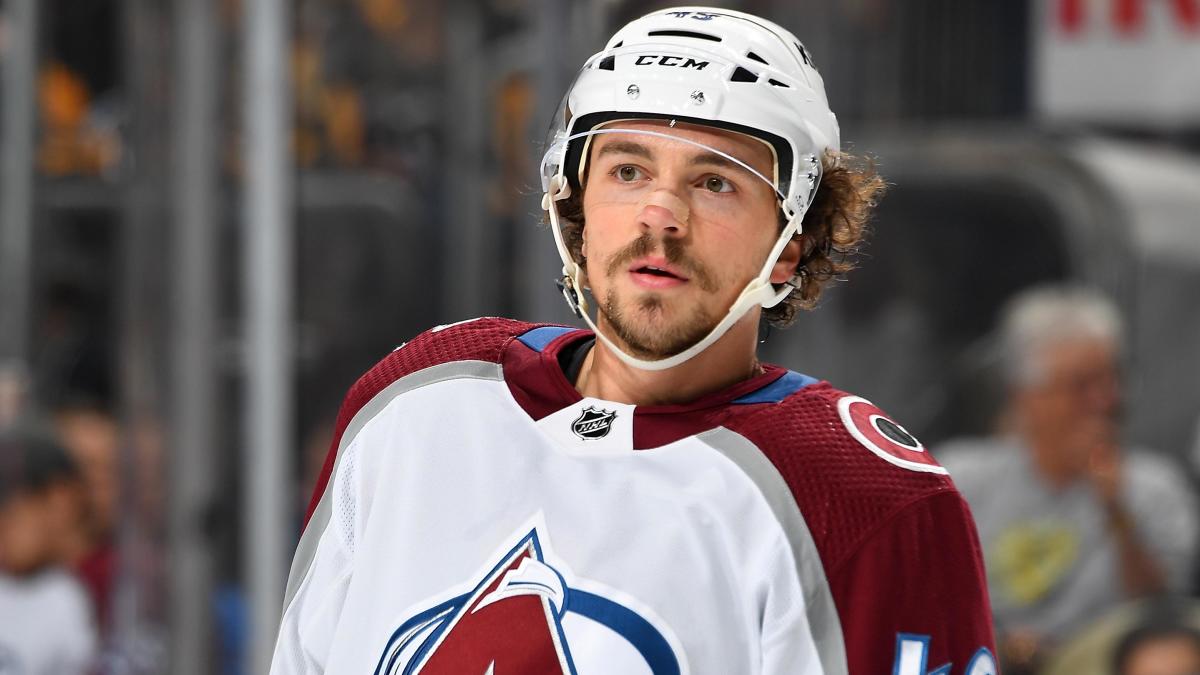This season, the Colorado Avalanche faced challenges in fostering team chemistry due to the inclusion of several new players, resulting in inconsistencies compounded by lingering injuries. Despite the team ranking third in the Western Conference and leading the Central Division, some devoted Avalanche fans have reacted with concern, hitting the panic button.

However, defenseman Samuel Girard has remained detached from the team’s ongoing drama for the past month – and that detachment is intentional and beneficial. Girard made a decision to step away from the team on November 24 to seek support through the NHL’s Player Assistance Program. Now, after a month’s hiatus, he is preparing to return. The Avalanche not only anticipate welcoming back the defenseman but also acknowledge and respect Girard’s commitment to returning to the team.
Girard’s Rocky Start & Facing His Demons
Girard has been a pivotal figure in the Avalanche’s defense since his arrival in a trade involving Matt Duchene and the Ottawa Senators back in 2017. Although not known for prolific scoring, never netting more than six goals in a season, he has consistently offered reliability on the ice, maintaining disciplined play with minimal penalties while logging substantial ice time of 20-24 minutes per game.
At the onset of this season, Girard faced a slow start, tallying just four points in the initial 15 games, with three of those points coming in the last two games. Additionally, he struggled with a minus-7 rating. However, behind these statistics lay a deeper issue that prompted Girard to take a courageous step in seeking help. Following Thanksgiving Day, he entered the NHL’s Player Assistance Program, addressing severe anxiety, depression, and subsequent alcohol abuse.
This significant personal struggle remained largely unknown outside the Avalanche organization, which extended considerable support to Girard during his absence. Returning to practice on December 21 after about a month away, Girard received praise from head coach Jared Bednar, who affirmed that the management remained in regular contact with Girard during his time away and eagerly anticipates his return to the team.
How the NHL Player Assistance Program Works
The NHL’s assistance program, established in 1996 by both the NHL and the NHLPA, has been a longstanding support system almost as enduring as the existence of the Colorado Avalanche. It was designed to aid players and their families who confront challenges related to mental health, substance abuse, and various other personal issues. Over recent years, mental health has garnered increased attention, especially after goaltender Robin Lehner openly shared his personal struggles in 2019. Lehner delivered a poignant speech addressing his mental health battles upon receiving the Bill Masterson Trophy that same year.
This program offers players access to a confidential hotline, with counselors available in every NHL city. Players can remain in the program for an unspecified duration and must receive clearance from those overseeing it before returning to the ice. While Girard spent a month in the program, others have undergone longer periods of assistance.
Maintaining privacy stands as a cornerstone of the program. The specific reasons for a player’s enrollment are not disclosed publicly, although, like Girard, some individuals may choose to share their own motivations for joining. This commitment to privacy serves as a crucial benefit for players seeking support. The response to Girard’s return has been overwhelmingly positive, highlighting the program’s importance in aiding players and fostering a supportive environment within the hockey community.
What Girard’s Return Means
Cale Makar’s presence is significant, yet Samuel Girard has been a consistent force for the team. Throughout his six seasons with the Avalanche, Girard has demonstrated remarkable durability, missing more than ten games only once. He displayed unwavering reliability, participating in every game during his initial two seasons and notably contributing a crucial goal in the Avalanche’s overtime triumph over the St. Louis Blues in Game 1 of the second-round playoff series in 2022.
While the team’s defensive unit coped with various injuries, the return of Makar and Bowen Byram, along with noteworthy performances from Sam Malinski over the past month, has contributed to stabilizing the lineup. Girard has predominantly paired with Byram this season, and his comeback is expected to fortify the Avalanche’s defensive depth significantly. His return should also infuse some much-needed consistency into a defensive crew that has faced setbacks, losing six of their last ten games.
Despite his commendable performance in the 2022 Playoffs, culminating in Colorado securing its third Stanley Cup, Girard sustained a broken sternum following a hit from Ivan Barbashev just two games after his goal against the Blues. This injury stood as the only major setback he encountered with the club before he vocalized his struggles with mental health—an admirable step.
Recognizing a player’s mental health on par with physical injuries, acknowledging the necessity for healing time, remains crucial. The Avalanche are likely to benefit from Girard’s return, with his veteran presence potentially enhancing team consistency. Yet, beyond on-ice contributions, the pivotal aspect of this narrative lies in Girard’s courage to seek help—aid that was readily extended by his team and the league. While another Stanley Cup win may not be guaranteed this season, the significant victory lies in Girard’s acknowledgment of needing assistance and the collective support offered by his team and the league.



